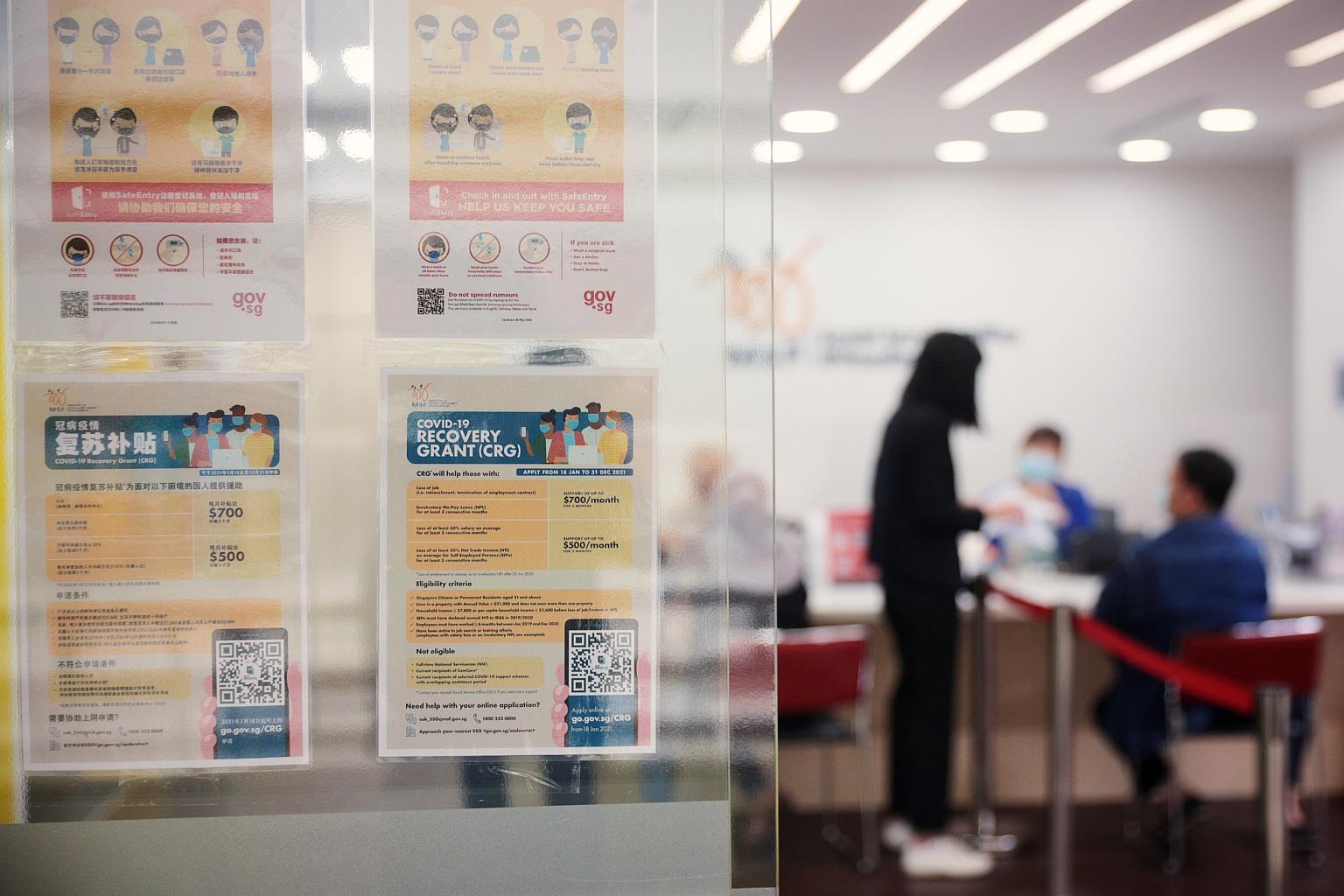Singapore agencies must subject key Covid-19 expenditures to checks, says public sector accounts watchdog
Sign up now: Get ST's newsletters delivered to your inbox

Parliament's Public Accounts Committee said while it is important to respond quickly to the pandemic, there is a need to ensure proper controls, governance and accountability over the use of public funds.
ST PHOTO: JASON QUAH
Follow topic:
SINGAPORE - Large sums have been spent in response to the Covid-19 pandemic, stretching public resources and leaving less of a buffer for unforeseen needs, Parliament's Public Accounts Committee said in a report on Monday (Feb 8).
It asked if mechanisms are in place to relook whether large-scale projects should be delayed or cancelled.
"Substantial expenditure had been incurred and will be incurred in the fight against the Covid-19 pandemic. New grant schemes were implemented to support businesses and individuals, and to deal with the public health and economic impact of the Covid-19 pandemic," said the report.
"The committee is of the view that while it is important to respond quickly to the evolving pandemic situation, there is a need to ensure proper controls, governance and accountability over the use of public funds."
The committee also asked about the activation of emergency procurement (EP) at the whole-of- government (WOG) level, and stressed the importance of subjecting key Covid-19 expenditures to analytics and audit checks.
In a press statement released on Monday, committee chairman and West Coast GRP MP Foo Mee Har said: "Importantly, the Covid-19 support measures must reach targeted groups, especially vulnerable groups such as low-wage workers and self-employed persons, who have been significantly affected by the pandemic."
Here are the key areas of concern and the relevant agencies' response as outlined in the report:
1. Accountability over use of public funds
The Ministry of Finance (MOF) recognises that agencies must continue to maintain proper governance, control and accountability over Covid-19 expenditure, while balancing policy and operational considerations.
An inter-agency Budget Implementation Committee, co-chaired by the permanent secretaries from MOF and the Ministry of Social and Family Development, was convened in April 2020 to oversee the WOG coordination and implementation of support schemes.
2. Emergency procurement procedures
MOF activated EP procedures at the whole-of-government level in late January 2020 for urgent purchases by agencies, in order to respond to the crisis.
These were deactivated in late August, as the time pressure on procurement had eased off for most agencies.
MOF assured the Committee that the same governance principles apply to EP as with normal procurement. These include the requirement to assess cost reasonableness, and to subject transactions to audit and compliance reviews.
Agencies are required to prepare an accountability report to document all EP decisions, and the report must be endorsed by the permanent secretary of the ministry in person.
MOF also issued guidance and advice to agencies on Covid-19 expenditure and grant programmes.
3. Heightened risks from pandemic disruptions
The committee was particularly concerned about risks in the area of public resources, and vulnerabilities from the acceleration of government digital transformation initiatives.
On resource risks, it wanted to know if there is a mechanism in place to re-evaluate the need and timeline for large-scale projects, as original projections might have changed significantly due to the pandemic.
MOF said the Government will face major constraints in its fiscal and manpower position given weaker economic growth prospects, structural population ageing and international tax pressures.
It will work closely with agencies to reallocate resources to create space for new priorities, and review expenditure for which assumptions may have fundamentally changed, especially for large-scale projects such as the Changi Airport Terminal 5 project, it said.
On digital transformation, the Smart Nation and Digital Government Group (SNDGG) said it had performed external and internal risk scanning, and has identified 10 risks based on WOG strategic outcomes.
"Most of the identified risk domains have been or are being addressed by ongoing efforts," said SNDGG.
"These include strengthening central and agency governance of infocomm technology and smart systems, strengthening agencies' management of data security and cybersecurity risks, and managing human capital risk."
4. Weaknesses and gaps identified in AGO report
The report also flagged weaknesses in information technology (IT) controls and gaps in grants management, as highlighted in the Report of the Auditor-General's Office (AGO) for the financial year 2019/2020.
The AGO report had noted weaknesses in IT controls at Ngee Ann Polytechnic and Republic Polytechnic, lapses in procurement and contract management at the National Library Board, and gaps in management of business grant programmes at the Workforce Singapore Agency and Enterprise Singapore Board.
Steps taken by SNDGG to strengthen IT governance and security include: automating the removal of user accounts no longer required; strengthening leadership attention on cybersecurity and data issues; and implementing a Third Party Management Framework to ensure that the standards of data protection that the Government places on itself are extended to all third parties it engages.
On the management of business grants programmes, MOF issued a new grants governance framework to all agencies in July 2020.
It also set up the Grants Governance Office in October 2019 to coordinate efforts and drive the implementation of the grants governance framework.
"MOF will ensure that agencies across the different grant sectors reach a baseline level of capabilities by the end of FY 2021," the report noted.

